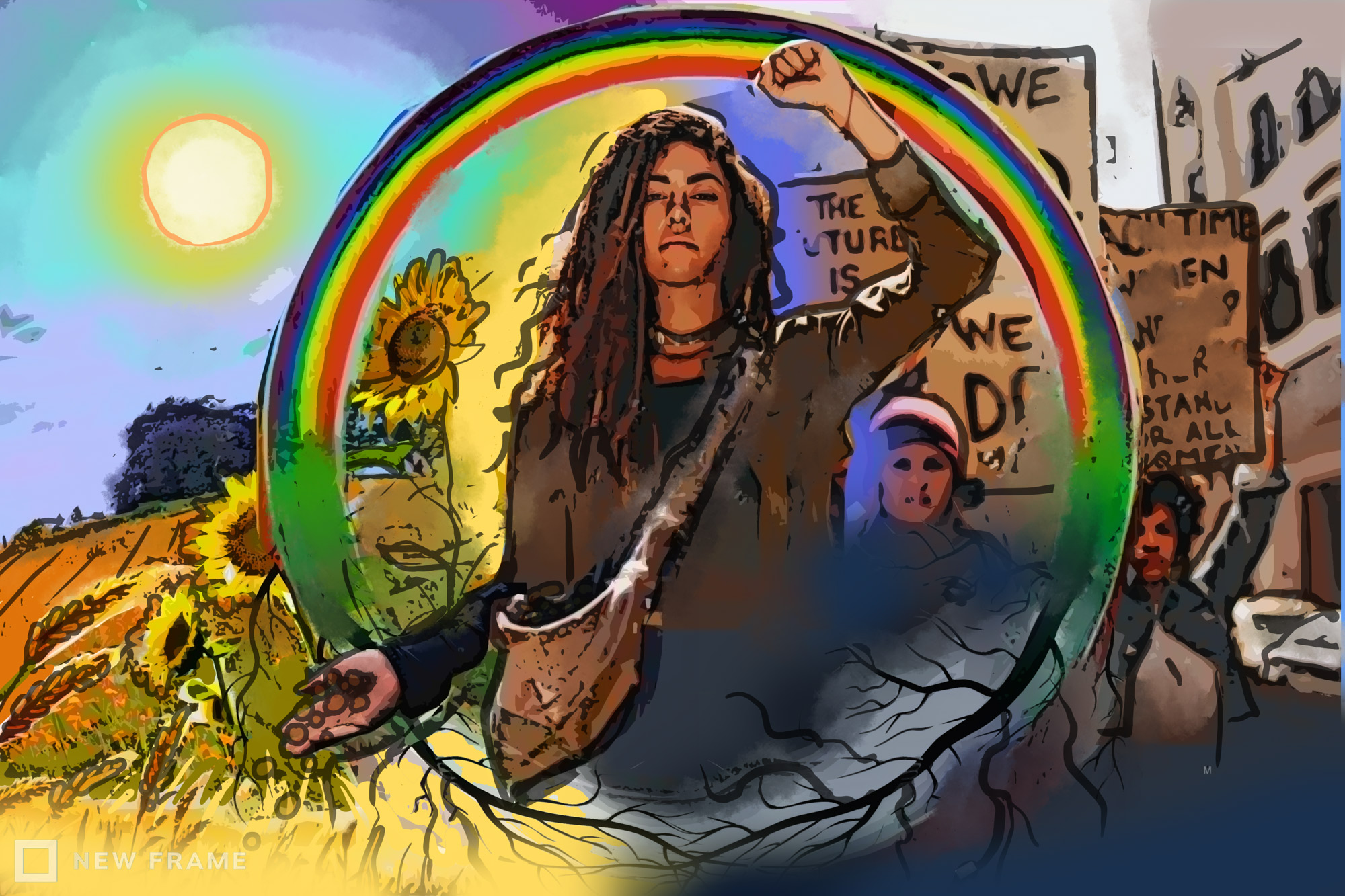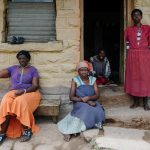With enough support, people can grow their own food
The Covid-19 pandemic has highlighted how impoverished people and the working class suffer when food prices rise and jobs disappear, prompting a renewed interest in working the land.
Author:
14 May 2020

The Covid-19 outbreak has led to tough times for many, especially impoverished workers. In South Africa, the government-imposed lockdown has resulted in many workers losing their jobs and other sources of income. And, though many receive grants, it is not enough to get them sufficient food.
The newly introduced Covid-19 social relief of distress grant of R350 a month, along with top-ups to other social grants, are but a short-term solution to an old problem that might soon get worse. Millions of informal sector workers will likely be left to fend for themselves in the long term. This has led to renewed interest in conversations about land access and small-scale farming.
In South Africa colonialism introduced a system of racial capitalism dependent on migrant labour. Many men, having to earn so-called hut tax, were forced to cities and mines, leaving behind their fertile lands and livestock and in time losing them for good. This legacy still persists.
Related article:
In post-colonial and post-apartheid South Africa, small-scale farming still remains a struggle for many who seek a livelihood. It is no secret that the government’s land reform policy continues to fail the masses. A huge percentage of land ownership still remains with white farmers. The few emerging black commercial farmers with access to acres and acres of land are merely part of the system, farming produce for exports and personal profit. Rural subsistence farmers get inadequate support and no resources from the government. So, although they till their largely barren lands and send their livestock out to overgrazed patches, it all leads to not much.
Rural activists using farming to end poverty
Food sovereignty and permaculture activists have been working hard to overturn this destructive act perpetrated on the environment and the poor. They have been converting wasteland to food gardens and sourcing sustainable methods and ways for communities to alternatively source land, seeds and water.
Ntsika Mateta, 30, has been a permaculture activist for almost a decade. He works with the Eastern Cape Water Caucus, an umbrella organisation for activist groups which campaign for clean water supplies. He has spent the lockdown period talking to residents in the Ngqushwa Local Municipality about permaculture and its potential benefits, going around to homes in Alice and Peddie.
Mateta works with several groups, including the South African Food Sovereignty Campaign, which is championing a people’s climate justice charter, and the Extinction Rebellion movement in Nelson Mandela Bay to create “collective commons in food security, food sovereignty and environmental justice”.
Related article:
He was drawn to indigenous farming at a young age in rural Ngqwele village where he was raised, but upon moving to crowded Duncan Village in East London, with no plot to cultivate, he lost touch with it.
However, by 2011 he had mastered the art of permaculture through years of informal theory and practical work in communal gardens, and has since worked on turning wasteland into permaculture gardens. The land Mateta has worked now has trees laden with fruits. He plants indigenous trees and many crops. The point is to produce enough food in a sustainable and environmentally sound way. His workshops have helped the residents of many villages and towns in the province to acquire skills and knowledge, which have proven to be beneficial during these uncertain times.
Mateta believes that in order for society to effectively respond to poverty and hunger, their causes need to be explored. This includes addressing the systems of oppression that continue to play a part in the degradation of indigenous food systems.
“In order to address poverty we need to address the root cause – the white supremacist extractive capital system which is rife with socioeconomic injustices, thus yielding inequalities, poverty and hunger,” he said.
Related article:
In Keiskammahoek in the Eastern Cape, young activists have organised themselves into agricultural cooperatives fighting poverty with seeds, organic vegetables and resilience. Ntinga Ntaba kaNdoda, a community organisation that wants self-determination in the rural areas, produces crops on more than 15ha of land.
Ntinga Ntaba kaNdoda collaborates with the Burnhill cooperative, founded in 1998 by Thabisa Mhlahlo, 45. Mhlahlo has been producing vegetables ranging from beetroot and cabbages to carrots and onions. She farms maize too. And, with other activists, she produces lucerne. The members, men and women, have been making a living from their produce for over 18 years, selling to locals at an affordable rate.
“We understand that people don’t have money, so we sell our produce to locals cheaper than in retail stores. A cabbage can cost locals R15 at retailers while we sell a cabbage to locals for R5,” Mhlahlo said.
Related article:
During the lockdown, the group has provided vegetable parcels to women without any income and has started helping young people to acquire land that they can farm. It also has its own seed bank and trains people in the community to generate seeds from vegetables.
“We have been funding our own farming and have not had any Covid-19 relief funds from the government. The only financial assistance we received was a small amount from the drought disaster relief fund before the lockdown. The government has a tendency of wanting to foist genetically modified seeds on farming cooperatives, which are very hazardous to our land and health. Our cooperative no longer accepts these seeds and we also want to encourage other cooperatives to do the same,” said Mhlahlo.
Urban farming providing much-needed relief
An urban garden project at Nkwenkwezi Primary School in Motherwell serving local community members has been providing much-needed relief for poor families in the area. The project was founded by workers from the expanded public works programme who wanted to supplement their meagre monthly income of R450. The group works the land twice a week. The school’s caretaker helps them irrigate their produce.
“We produce spinach, carrots and cabbage as they are easy to grow and use less water than other vegetables. These vegetables have helped us a lot during the lockdown; we saved a lot of money,” said Vuyokazi Mkuma, 45, a member of the project.
Related article:
Land expropriation has been extensively debated in the country for decades and no progressive solution has been found or implemented. Food insecurity, in the meantime, gets worse. The government, by providing arable land to these communities and groups already eager to farm, would have responded well. No longer would people in overcrowded townships and shack settlements have to use tyres and small plots to grow food.
Amid Covid-19, the agriculture department has set aside R1.3 billion to aid small-scale farmers. If this money gets distributed fairly and without corruption, it will go a long way in firmly establishing those who are poor and work the land. By providing land, access to machinery, expertise, fertiliser and seeds to these farmers, the government would have helped itself too. Its failing food parcel system would, in the long run, be replaced by a sound and sustainable solution to food insecurity in South Africa.





